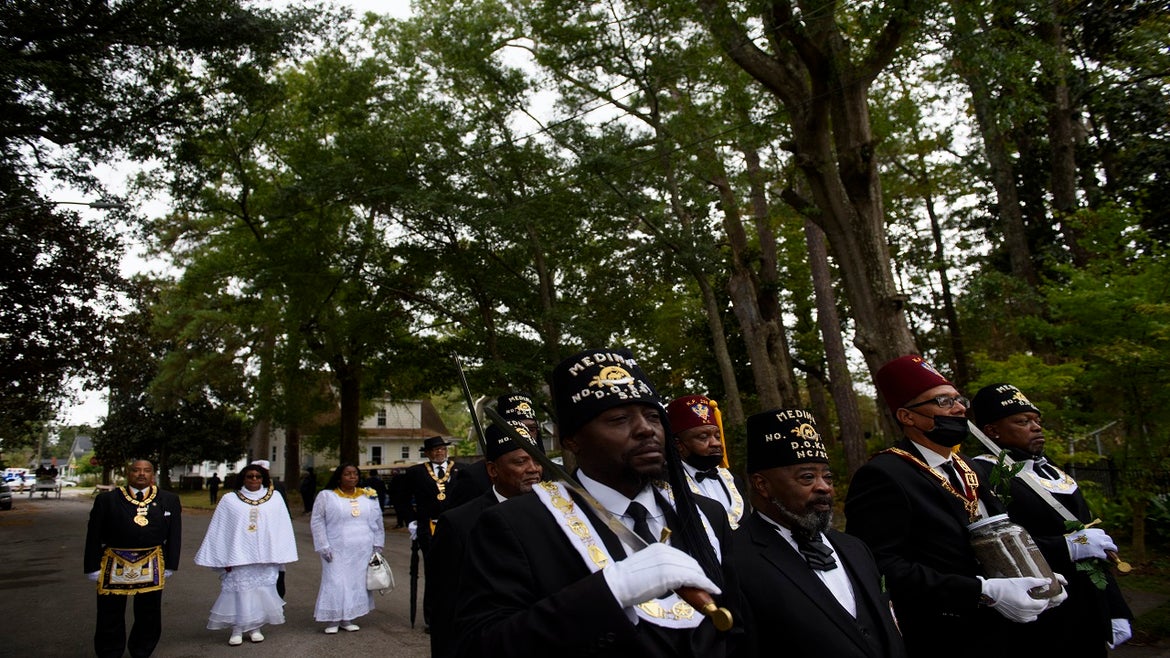After 123 Years, Joshua Halsey is memorialized after being murdered in North Carolina massacre.
In 1898, Black laborer Joshua Halsey was chased down by a white mob and shot 14 times in what became known as the Wilmington Massacre. More than a century later, the North Carolina father of four finally got a headstone and a funeral.
His service on Saturday was attended by local leaders, hundreds of Black and white residents, and his descendants, some of whom came from across the country and only recently learned the 46-year-old man gunned down in the street was a relative.
The massacre claimed as many as 250 lives when white rioters rampaged through the predominantly Black city and burned down the Black newspaper, set fire to successful Black businesses and lynched residents.
Halsey's unmarked grave was the first identified by the Third Person Project, a historical research group. Painstaking efforts by the group combed through cemetery records. A state report on the 100th anniversary of the massacre identified two victims: Halsey and Samuel McFarland.
"We were in shock, because this is so unprecedented," Elaine Cynthia Brown told CNN. "But then we said, 'You know what? Why not Joshua?'
"Why not be the beacon of what can happen when we sort of unearth the truth, uncover the truth and unpack it?" Brown said. "You know, this is where it's going to start and the stories are going to come out as more victims are found, and we hear their stories. But we now know that it exists. We now know that we can change it. We now are getting the true history of what happened here."
At the time, Blacks "were employed in all segments of the workforce, as professionals, skilled artisans, government employees, maritime crew members, industrial workers, laborers and domestics," the 1898 Wilmington Race Riot Commission found.
Not unlike Oklahoma's Greenwood massacre in 1921, white residents of Wilmington, then the largest city in North Carolina, raged through town, burning and murdering Black enterprises and residents.
Black city officials were driven from their offices and replaced by whites.
The ceremony is part of series of events planned from November 1 to 10 by the county, the city of Wilmington and several organizations to commemorate the massacre and honor its victims.
A horse-drawn hearse carried soil from Halsey's home on Saturday to his remains' new resting place. Rev. William Barber II of the Poor People's Campaign, a social justice effort inspired by Martin Luther King Jr., gave the eulogy.
"We must find the vestiges of systemic racism that are still happening today and that are still going on today," Barber said. "And we must call them out in Joshua's name. I'm here to tell you that what killed Joshua is still alive today."
Related Stories






